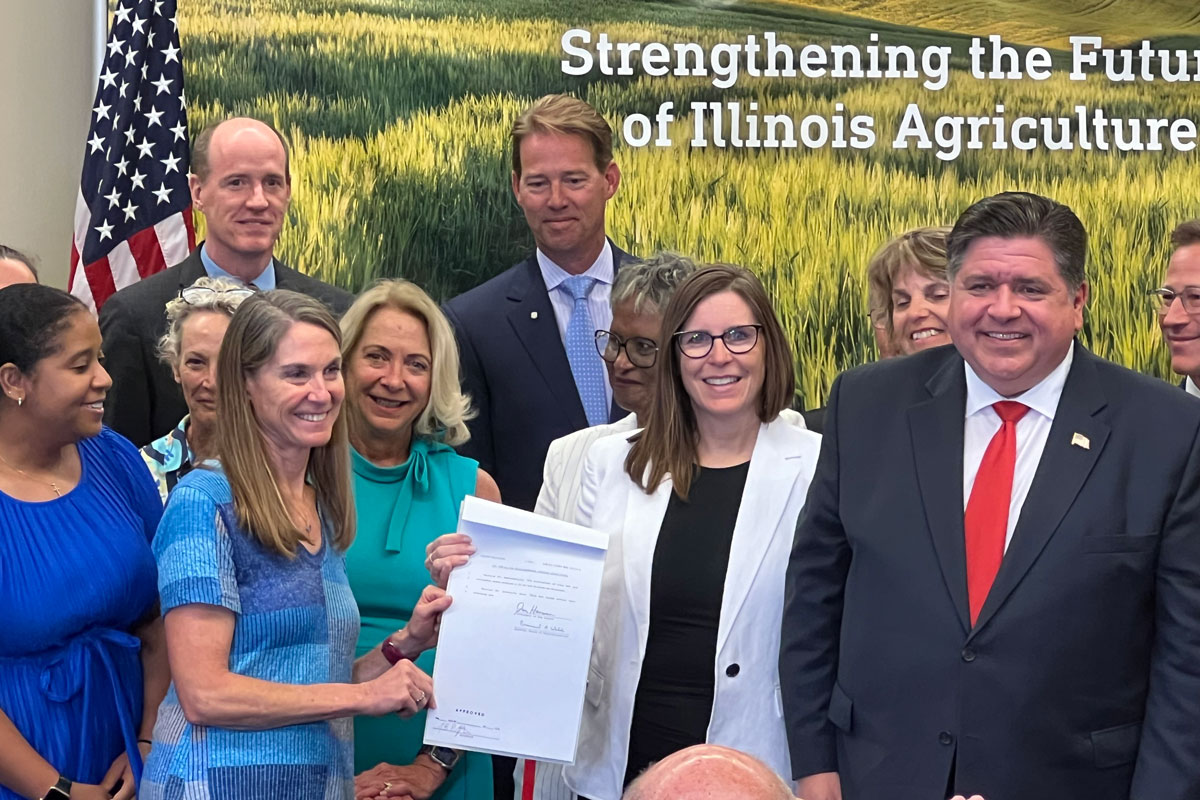 SPRINGFIELD – Due to our unique geology, Illinois has attracted interest from industry to pursue carbon capture and sequestration (CCS) projects. In response to this growing industry, State Senator Laura Fine passed legislation to ensure these projects meet some of the strongest environmental protections in the nation.
SPRINGFIELD – Due to our unique geology, Illinois has attracted interest from industry to pursue carbon capture and sequestration (CCS) projects. In response to this growing industry, State Senator Laura Fine passed legislation to ensure these projects meet some of the strongest environmental protections in the nation.
“Senate Bill 1289 secures long-term protections to keep Illinois communities safe and benefit from the growing carbon capture and sequestration industry,” said Senator Fine (D-Glenview). “Over the course of many months, environmental advocates, unions, landowners and industry helped to establish robust safety requirements to protect our land and water, ensuring that corporations, not Illinois taxpayers, are held liable for operations and safety.”
Senate Bill 1289 sets environmental safety requirements at each stage in the carbon capture process—at the capture facility, via pipelines, and at sequestration sites. First, the law ensures that Illinois remains a leader on climate progress by requiring that carbon capture companies not increase dangerous air pollution and will be required to demonstrate a net reduction in climate pollution. In addition, the law establishes an up to two-year moratorium on carbon dioxide pipelines while we await federal safety and oversight rules.
“Without this bill, Illinois is unprepared and unprotected from the growing interest from industry to pursue CCS, and it’s urgent now more than ever that we have the strongest possible safeguards in place for taxpayers, landowners and our environment,” said Christine Nannicelli, Senior Campaign Representative with Sierra Club Illinois. “SB1289 includes some of the strongest carbon capture protections in the nation and makes sure industry plays by our rules.”
The law also holds sequestration site operators at standards above and beyond US Environmental Protection Agency requirements. Under Senate Bill 1289, the Illinois Emergency Management Agency, Illinois Fire Service Institute, Office of State Fire Marshal, and the Illinois Department of Public Health must create training to prepare enhanced local emergency response plans. Additionally, the law requires corporations to monitor sequestration sites for a minimum of 30 years after the last carbon injection.
“The bill begins to address some of the greatest safety threats from carbon capture and sequestration projects and offers nearby communities necessary protections from potential leaks and disasters,” said Jenny Cassel, Senior Attorney at Earthjustice. “By ensuring that operators remain financially and legally responsible for maintaining sequestration sites long after carbon injection ends, the SAFE CCS Act deters companies from cutting corners.”
“Carbon capture technology is already here in Illinois, and we are regulating future projects to ensure they are truly part of Illinois’ climate mitigation strategy and do not harm Illinois communities,” said Fine. “I will continue working with environmental advocates, landowners and lawmakers to expand protections to ensure we have the strongest regulations in the country.”
Senate Bill 1289 was signed into law Thursday and goes into effect immediately.
“We are grateful for Governor Pritzker’s leadership on this bill,” said Illinois Environmental Council executive director Jen Walling. “Thanks to Governor Pritzker and the efforts of hundreds of activists across the state, Illinois now has some of the strongest carbon capture and sequestration protections in the nation.”













 © 2026 Illinois Senate Democratic Caucus
© 2026 Illinois Senate Democratic Caucus